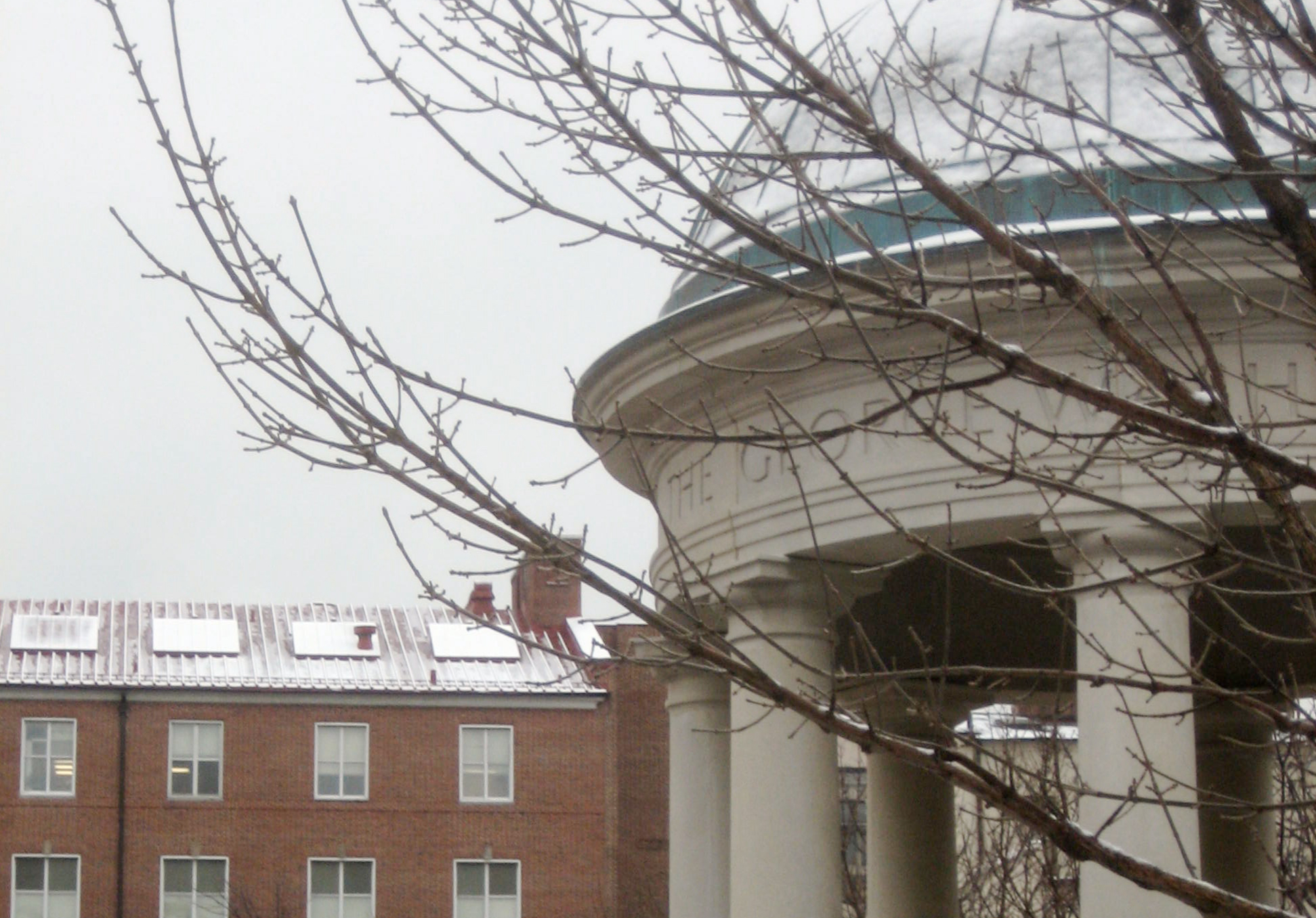Constitution
Jonathan Turley: The Struggle for and Promise of Free Speech
A review of The Indispensable Right Free Speech in an Age of Rage by Jonathan Turley, law professor, columnist and litigator.

Censorship – the regulation, suppression, and criminalization of disfavored speech – has mounted a comeback. Government officials, social media content moderators and moguls, journalists, and professors have aligned to thwart dissemination of misinformation, disinformation, malinformation, hate speech, and harmful or offensive remarks. They applaud themselves as brave activists blazing a new path to the achievement of a truly diverse, equitable, and inclusive democracy.
Jonathan Turley attacks the authoritarian throwbacks
Yet they are throwbacks, as Jonathan Turley shows in “The Indispensable Right: Free Speech in an Age of Rage.” A distinguished George Washington University Law School professor, Turley is also an eminent columnist, television analyst, and litigator. His book provides a bracing “history of the struggle for free speech in America” and an incisive account of “the promise of free speech” in the United States and wherever basic rights and fundamental freedoms are protected. Through his winning combination of historical reconstruction, legal analysis, and philosophical exposition, Turley reveals that the arguments for regulating speech that the contemporary censorship industrial complex touts as original have a long and disreputable lineage.
In the West, which developed exemplary principles of free speech, that lineage of censorship stretches back to democratic Athens, which put Socrates to death for teaching the young to ask hard questions about virtue and justice, human nature, and the cosmos. It encompasses the early modern Star Chamber which in 16th– and 17th-century England prosecuted the crime of seditious libel – speaking ill of public officials, the laws, or the government – and the great 18th century English jurist William Blackstone who insisted on seditious libel’s criminality.
America strives to break the grip of tyrants
And despite America’s founding promise and constitutional imperatives, government silencing of criticism of government extends throughout the nation’s history. Those who today undertake to expand the authorities’ power to determine what is and what is not fit for the public to think, say, and hear give fashionable expression to the authoritarian impulses, aims, and actions that not only have beset the West, but which also have marked most political societies throughout most of history.
American constitutional government sought to break authoritarianism’s grip. The Declaration of Independence stated that government’s primary task was to secure unalienable rights, starting with life, liberty, and the pursuit of happiness. In the original Constitution, the sovereign people protected speech by declining to delegate to Congress the power to regulate it. The First Amendment, ratified two years after the Constitution went into effect, explicitly denied Congress the power to abridge free speech. This reinforced the fundamental freedom – as stated in “Cato’s Letters,” widely read in 18th-century America – to “think what you would and speak what you thought.”
The two justifications of free speech
Free speech, Turley emphasizes, has two major justifications. The first is functional: Free speech undergirds the liberal education and robust public discussion that produce the informed citizenry on which a rights-protecting democracy depends. The second justification, grounded in natural rights teachings, affirms that speaking freely is inseparable from our humanity.
While both justifications are crucial to constitutional government in America, Turley stresses that the tendency to rely exclusively on the functional argument alone has proved calamitous. Protecting free speech solely because it is good for democracy invites the curtailment of this utterance or that publication on the grounds that it undermines democracy.
Free speech fortifies the other four First Amendment freedoms. Religious freedom includes the right to profess one’s faith, as well as the right not to profess other faiths or any faith at all. A free press keeps citizens knowledgeable about the news and circulates opinions and ideas. The freedoms of assembly and petition enable citizens to communicate among themselves and express their concerns to the government.
Free speech’s benefits go beyond the political. It honors our inherent dignity as social and political animals who reason, speak, make moral judgments, create, and pursue happiness.
Attacks on free speech
Recent years have witnessed attacks on free speech from multiple angles. For example, during the COVID-19 pandemic, Twitter and Facebook cooperated with government to stifle discussion of the virus’s origins and the efficacy of masks, lockdowns, and vaccines. And in October 2020, a few weeks before the presidential election, social media blocked access to a New York Post exclusive about Hunter Biden’s abandoned laptop. The laptop, which the FBI had possessed for 10 months and had authenticated, contained compromising materials about Hunter and his father, the Democratic presidential nominee. The Twitter Files and a letter last week from Meta CEO Mark Zuckerberg to House Committee on the Judiciary Chairman Jim Jordan confirm these illicit collaborations to stifle speech.
Meanwhile, the federal government, large corporations, and universities worked to compel employees to affirm the goals of the diversity, equity, and inclusion movement. DEI, as it is widely known, does not generally furnish lessons in respecting others at the workplace and on campus regardless of race, ethnicity, and sex – basic requirements in a free society. To the contrary, DEI, as it is commonly practiced, downplays traditional conceptions of merit in hiring, retention, and promotion and instead advocates advancing individuals based in significant measure on their identity as members of historically discriminated against groups.
Parents find out for the first time what the schools are teaching their children
As they stood over their children’s shoulders for Zoom classes during the pandemic, many parents were stunned to observe that K-12 schools wielded the curriculum as a weapon to promulgate progressive views: gender is fluid, America is systemically racist and rapacious, and, not least, free speech endangers individual well-being. Predictably, progressive indoctrination generated a backlash on the right, provoking some conservatives to overreach by endeavoring to ban books that espoused progressive notions. However, the proper remedy to indoctrination in a free society, adopted by leading conservative reformers, is not banning the teaching of progressive books and ideas or requiring the teaching of conservative ones but prohibiting schools from presenting any books or ideas as unchallengeable orthodoxy.
Hamas’ Oct. 7 massacre and kidnapping of Israeli civilians precipitated another public awakening to the erosion of and confusion surrounding free speech in America. On the nation’s campuses, especially elite ones, students and faculty not only championed the jihadists’ genocidal cause – destruction of the Jewish state – but disrupted academic programs and threatened Jewish students for their faith and for supporting Israel. Notwithstanding a few honorable exceptions, colleges and universities that would swiftly shut down speech deemed harmful to women and many minorities proved reluctant to prohibit harassment and intimidation that called for the genocide of the Jews.
The end stage in leftist indoctrination
The routinization of progressive censorship in America over the last few years does not stem from a recent shift in the winds. Rather, it represents the latest stage in a decades-long embrace by professors, teachers, and administrators of the belief that education’s primary purpose is not to transmit knowledge and cultivate independent thought but to promulgate progressive values. Progressives, however, have all too many precursors in the resort to censorship.
Crackdowns on free speech, Turley stresses, have recurred regularly in America. They include the Alien and Sedition Acts signed into law in 1798 by President John Adams, President Woodrow Wilson’s use of The Espionage Act of 1817 to punish dissent to America’s involvement in World War I, Supreme Court Justice Oliver Wendell Holmes Jr.’s opinions upholding the World War I criminalization of political speech, and Sen. Joseph McCarthy’s campaign to root out and destroy communists and their sympathizers.
The academy leads the attack on free speech
Today, the academy leads the charge against free speech. Often an echo chamber rather than a community of inquiry, universities feature prominent professors who, according to Turley, reject objective knowledge, which they deride as “reactionary and harmful.” Many professors believe that their job, both as scholars and classroom teachers, is to construct narratives to advance social justice. Influential law professors, particularly critical legal studies scholars and feminist theorists, maintain, Turley reports, that the “textual or historical interpretations that were once the foundation of legal analysis” must be replaced by the unimpeachable personal experience of minorities and women. The reasoned analysis and hard evidence of the oppressors – white men – must be silenced in favor of the fiction, poetry, and dreams of the oppressed, who are just about everybody else.
Turley advances two major proposals for restoring free speech in America. The first conditions federal funding – including research grants and student loans – on universities’ protection of free speech. It follows the Title VI and Title IX model. The former bars discrimination based on race, color, and national origin at universities that receive federal funds. The latter bars sex discrimination at universities that receive federal funds.
Eliminate any thought of prosecution for sedition
The second proposal would eliminate sedition prosecutions. Turley cites James Madison’s 1798 letter to Thomas Jefferson condemning the Adams administration’s censorship laws as the “monster that must forever disgrace its parents.” In the determination to convert such serious charges against Jan. 6 rioters as criminal trespass, assault, and conspiracy to obstruct congressional proceedings into sedition cases, for example, Turley identifies an attempt to “amplify the culpability of the defendants” by punishing their beliefs.
Turley stresses that “Trump was wrong on his view of the election fraud claims and his view of the authority of Vice President Pence to block certification” and underscores that the “riot was worthy of universal condemnation.” At the same time, Turley also sees Madison’s monster rearing its head in the portrayal of Trump’s Jan. 6 Ellipse speech – entirely protected by the First Amendment – as part of a criminal undertaking to obstruct Congress. And Turley sees Madison’s monster as driving state efforts to keep Trump off the 2024 presidential election ballot on the grounds that he engaged in “insurrection or rebellion,” which would disqualify him from holding federal office under Section 3 of the 14th Amendment (drafted and ratified with the Civil War in mind).
The best protection against misinformation, disinformation, malinformation, hate speech, and harmful or offensive remarks remains liberal education and open and vigorous public debate. Essential to both, free speech is a human right as well as a constitutional imperative.
This article was originally published by RealClearPolitics and made available via RealClearWire.
Peter Berkowitz is the Tad and Dianne Taube senior fellow at the Hoover Institution, Stanford University. From 2019 to 2021, he served as director of the Policy Planning Staff at the U.S. State Department.
-

 Accountability2 days ago
Accountability2 days agoWaste of the Day: Principal Bought Lobster with School Funds
-

 Constitution2 days ago
Constitution2 days agoTrump, Canada, and the Constitutional Problem Beneath the Bridge
-

 Executive21 hours ago
Executive21 hours agoHow Relaxed COVID-Era Rules Fueled Minnesota’s Biggest Scam
-

 Civilization20 hours ago
Civilization20 hours agoThe End of Purple States and Competitive Districts
-

 Civilization4 days ago
Civilization4 days agoThe devil is in the details
-

 Executive4 days ago
Executive4 days agoTwo New Books Bash Covid Failures
-

 Civilization3 days ago
Civilization3 days agoThe Conundrum of President Donald J. Trump
-

 Executive4 days ago
Executive4 days agoThe Israeli Lesson Democrats Ignore at Their Peril




